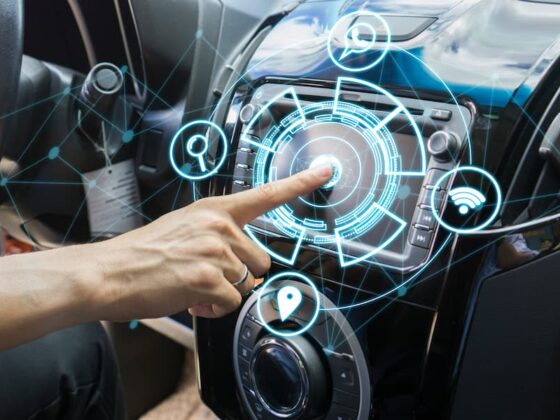Carly Fan and Carmen Tang discuss the impact of COVID-19 on civil litigation. They go through the issue of Force Majeure clauses and changes related to court hearings in Hong Kong. These include legal basis of remote hearings and new modes that have been recently implemented, for example video and telephone conferencing facilities, as well as hurdles faced by the local Courts during this unprecedented pandemic.
World Litigation Forum aims to enhance the effectiveness of Litigation Laws by organizing interaction between Legal stakeholders, including both the public and private sectors. The World Litigation Forum is devoted to providing a platform to bring together legal professionals from around the world to connect, network, develop business. It also addresses and discusses the latest legal trends, IP Litigation Issues, Impact of GDPR, current issues & challenges in Law.
Due to overwhelming concerns about COVID-19, the 11th World Litigation Forum 2020 Amsterdam cancelled its in-person conference in The Netherlands, and instead shifted to an entirely virtual experience with Virtual World Litigation Forum 2020.
Show Notes:
01.08 – Rise of legal disputes
03.18 – Hong Kong Courts and the pandemic
05.10 – Remote hearings
06.57 – Restrictions and hurdles faced by the Courts
TRANSCRIPT
Carly Fan 00:08
Hello, Carmen, thank you for being with us today. You’ll be sharing on the topic “Litigation during COVID-19”. So, you have been with Hugill & Ip Solicitors since the start of the firm as a partner, and I know that you have 15 years of past experience working as a civil litigator, and you have also dealt with a lot of cases involving data protection policies. So we’re especially excited for you to share with us on this topic. Can you maybe briefly go through the main parts that you’ll be sharing with us?
Carmen Tang 00:42
Sure. Thank you, Carly. I’m honored to be sharing in the World Litigation Forum this year, especially on this timely topic. We are going to talk about basically four areas. First, how COVID-19 give rise to legal disputes. How did Hong Kong courts cope with the COVID and also the legal basis for having remote court hearings in Hong Kong, and lastly, the difficulties and hurdles that faced by the Hong Kong Courts and the litigants.
Carly Fan 01:10
So we all know that COVID-19 has impacted all work types globally, and the legal sector is no exception to that. Law firms and the courts have realized that there are fundamental changes that need to be made in order to accommodate the pandemic, especially quarantine and lockdown measures. So, before we discuss what Hong Kong courts did to accommodate the outbreak of the pandemic, can you first talk about how the COVID-19 pandemic affected legal disputes?
Carmen Tang 01:45
In terms of legal disputes, I think the most significant impact is the enforcement of force majeure clauses. While force majeure clauses are quite common in most of the contracts in which parties are freed from liabilities under extraordinary events. However, do take note that “pandemic” may not necessarily be included as one of the extraordinary events in the clauses. So lawyers need to take note how the pandemic is defined in those contracts. The force majeure clauses issues can actually appear in the international cases for example, commercial disputes, maritime, intellectual property cases, it can also arise in domestic cases for example, like under tenancy agreement, tenants may not be able to open business as usual during the outbreak and they may not be able to pay rent on time and in also in accordance with the agreement and therefore there will be disputes between the tenants and also the landlords. In terms of the mode of dispute resolution, since the outbreak may not subside in the near future, and also there is uncertainty in terms of the enforcement and also the interpretation of the force majeure clauses. So parties may consider resolving the disputes through litigation in court rather than through mediation in that cases and precedents can be relied on in future by the parties.
Carly Fan 03:20
Thanks for sharing your insights on how COVID-19 impacted legal dispute cases. Next, I would like to talk about how Hong Kong courts try to ensure that there is normal operations during the pandemic. Can you briefly share with us what is the timeline of how Hong Kong courts react initially when there’s an outbreak?
Carmen Tang 03:41
Sure, since the outbreak in late January 2020, the judiciary directed that all proceedings be generally adjourned, which is we call the so called General Adjourned Period, the GAP and the GAP period basically ended in early May 2020. And during this period of time the courts still heard urgent cases. But for other matters, they were trying to actively consider whether they can be disposed of by way of paper, or actually using other means, for example, conducting remote court hearings in Hong Kong. In one case, one High Court judge decided to try a case by telephone conferencing in late February 2020. He considered that even though the parties were not present in the courtroom, it doesn’t mean that the matter could not be disposed fairly and openly. Also in April 2020, the judiciary issued guidance notes on the policies in relation to the use of remote court hearings for disposing civil businesses in Hong Kong. However, do take note that the use of remote court hearing is not still subject to the courts direction. It means that it’s not up to the party to decide when they can use the remote court hearings mode.
Carly Fan 05:12
As we all know, the development of the judiciary and legal systems rely heavily on precedents and past experiences. In this day and age, a lot of industries rely on technology and digitalization to make sure that they work more conveniently and efficiently. However, historically, judges prefer parties to convene in the courtroom to make submissions and there needs to be physical attendance. Can you discuss more what is the legal basis of Hong Kong courts to allow remote hearings?
Carmen Tang 05:45
In two recent Hong Kong decisions two judges have conducted in depth analyze on the legal basis of conducting remote hearings in Hong Kong and it is good that they have actually mentioned a few points: first, under the existing legal framework, there is no restriction that the parties are not allowed to conduct remote hearings outside the courtroom. And also there is no requirement that the parties and the representative have to be physically present in the courtroom, so that the judge can hear the cases. So under the current framework, whether video conferencing facilities type of hearing can be heard it’s a matter of construction of the phrases stipulated in the current ordinance: that is, so the so called hearing or determining the matter, or the cases be heard in chambers, and it is good that the judge also remind us that a purposive approach should be adopted when interpreting the provisions in the existing ordinance, in that we should not stick to the historical approach, but need to consider the circumstances at the material time.
Carly Fan 06:59
As a follow up question, can you share with us what are the requirements of remote hearings? Are there any indispensable aspects that must be safeguarded?
Carmen Tang 07:09
Yes, there are certain kind of requirements, they are actually basic concepts that we should be reminded of that is, for example, like fairness and openness. The court should ensure that accurate official record of the hearings is in place and also even the proceedings is to be carried out outside the courtroom, the order of the proceedings should also be taken into account of. In fact, the two concepts fairness and also openness are included in our existing ordinance. That is Hong Kong Bills of Rights Ordinance and also the Basic Law and in terms of the system used in Hong Kong currently, the Hong Kong court is using the so called DARTS system that is the Digital Audio Recording Transcription Service system and if the court hearings to be conducted by telephone conferencing or even using the VCF, that is the video conferencing facilities, they will be linked it to the system, so record keeping will not be a problem.
Carly Fan 08:14
Now that we have established the legal basis for courts to conduct remote hearings, from your understanding, what are some current hurdles or restrictions faced by the Hong Kong courts?
Carmen Tang 08:24
As many people know that in jurisdictions like England and Wales, Singapore, and also like Canada they have already gone a long way to embrace digitalization in court hearings. However, for Hong Kong, they are still facing some problems. For Hong Kong courts, first, we have to acknowledge that their system is a bit outdated, which means that specialists in the IT need to be present during the proceedings so as to make sure the system is okay throughout the court hearings. Secondly, the use of the system is quite costly, and the fees have to be paid by the litigants themselves. Thirdly, some of the configurations even for simple tasks are necessary, for example, like for file sharing and screen sharing. The most important of all is other current technology only allows no more than three participants, which means that for the parties, they need to be packed in the same room to use the VCR facilities with the legal representatives, despite the fact that the social distancing policy is in order. So you can see that there is still some, there are some ways to go before Hong Kong can actually fully utilize the technology mode in court hearings.
Carly Fan 09:46
And also just another question for you. Do you know are there quite a lot of remote hearings done during this period?
Carmen Tang 09:53
Not really. There are some cases but most of the cases are actually just Court of Appeal cases.
Carly Fan 10:00
Thank you, Carmen for sharing about the different aspects in relation to COVID-19. So we know that in Hong Kong, the courts have actually made quite some effort in order to accommodate for normal operations of in the courtroom. However, as you mentioned just now, there are currently still a lot of technological restrictions that the Hong Kong courts should take note of, and they should try to make more efforts in order to accommodate for future remote hearings to be held. So I guess we can all look forward to the future developments in relation to remote hearings in the courtroom in Hong Kong.
Carmen Tang 10:41
Thank you, Carly.
Carly Fan 10:42
Thank you, Carmen.
This video is for informational purposes only. Its contents do not constitute legal or professional advice.




